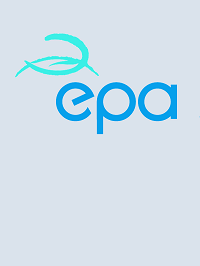Preparation of supported hydrophilic polymeric and mixed matrix membranes for dehydration of ethanol by pervaporation
Final Report for the STRIVE project: 2007-FS-ET-13-S5
Summary: STRIVE Report 30 - Donal Keane, Eoin Flynn and Michael Morris

Pervaporation is a membrane separation process involving partial vaporisation of a liquid mixture through a membrane whose downstream side is held under vacuum. The main industrial application of pervaporation is organic solvent dehydration. The most common example still remains the production of anhydrous ethanol for the pharmaceutical industry.
This clean technology avoids ethanol contamination by toxic species as typically encountered with the former azeotropic distillation process. Ethanol produced from renewable energy sources has received recent interest as a future biofuel. At present, anhydrous ethanol is added to petrol to improve efficiency and reduce emission of exhaust.
This report describes the preparation of supported polymeric membranes for dehydration of ethanol by pervaporation.